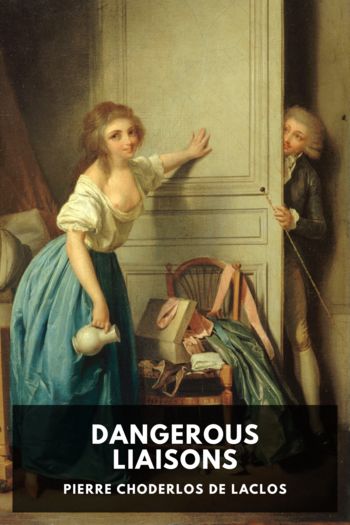The Disappearance of Stephanie Mailer: A gripping new thriller with a killer twist, Joël Dicker [general ebook reader .txt] 📗

- Author: Joël Dicker
Book online «The Disappearance of Stephanie Mailer: A gripping new thriller with a killer twist, Joël Dicker [general ebook reader .txt] 📗». Author Joël Dicker
“The parking lot of the mall?” Grandpa repeated in an outraged tone. “Never been there in my life!”
“Sir, a vehicle registered in your name and corresponding to the one parked outside your house has been formally identified by a number of witnesses after a man was attacked by a little blonde girl.”
“There’s no little blonde girl here,” Grandpa assured him.
Unaware of what was going on, I came to the door to see who Grandpa was talking to. I had my wig on my head.
“That’s the little girl!” the other officer cried.
“I’m not a little girl!” I said, assuming a deep voice.
“Don’t touch my Jessica!” Grandpa yelled, placing his body full in the doorway.
It was at this point that my grandparents’ neighbor, Ephraim Jenson, made his entrance. Alerted by the rumpus, he came out and brandished a police officer’s badge. I didn’t grasp what he told the other two officers, but I realized that Ephraim was an important policeman. It only took a few words from him, and his colleagues apologized to Grandpa and left.
From that day on, Grandma, who had a certain awe of authority and uniforms from her days in Odessa, elevated Ephraim to the ranks of the just. And to thank him, every Friday afternoon she made a delicious cheesecake, such as only she knew how, filling the kitchen with delicious smells when I returned from school. I knew I wouldn’t get even the smallest portion. When the cake was ready and wrapped, Grandma would say to me. “Take this to them, Jesse. That man is our Raoul Wallenberg!” I would present myself at the Jensons’ and, in handing over the cake, had to say these words to them: “My grandparents thank you for saving our lives.”
Going to the Jensons’ every week as I did, I began to be invited to come in and stay for a while. Becky would say that the cake was enormous and there were only two of them, and, despite my protests, she would cut off a piece which I would eat in their kitchen with a glass of milk. I liked them a lot. Ephraim fascinated me and in Becky I found the mother’s love that I missed, since I didn’t see enough of my own mother. Before long, Becky and Ephraim were suggesting I go with them to Manhattan at weekends, to walk about or visit exhibits. They were getting me away from my grandparents. Whenever they rang the bell and asked my grandma if I could go with them, I had an immense feeling of joy.
As for the little blonde girl who punched people in the balls, she was never tracked down. Jessica disappeared forever and I never again had to wear that hideous wig. Sometimes, in moments of distraction, Grandma would remember Jessica. In the middle of a family meal, with twenty people around the table, she would suddenly declare:
“Jessica died in a supermarket parking lot.”
A long silence would follow. Then a cousin would venture to ask:
“Jessica who?”
“It must have been something that happened in the war,” someone else would say.
And the whole company would assume a grave expression and lapse again into silence, because nobody ever talked about Odessa.
After that business with Robert’s balls, Grandpa decided that I was now well and truly a boy, and even a brave boy. As a reward, he took me one afternoon to the back room of a kosher butcher, where an old man, originally from Bratislava, gave boxing lessons. The old man was the former butcher—the store was now run by his sons—and he spent his days giving the grandchildren of his friends free lessons in boxing, which consisted basically of making us punch stale carcasses while, in a voice with a hint of a faraway accent, he told us about the finals of the 1931 Czechoslovakian boxing championship.
So it was that I learned how every afternoon, in Rego Park, a coterie of old gentlemen, on the spurious pretext of wanting to spend time with their grandchildren, escaped from the family home and came to the butcher’s. They would sit on plastic chairs, wrapped in their coats, and drink black coffee and smoke, while a whole lot of street boys banged away at quarters of meat suspended from the ceiling. And when we were tired, we would sit on the floor and listen to the stories of the old man from Bratislava.
For months, I spent all my late afternoons boxing in the butcher’s, in the greatest secrecy. It was thought I might have a gift for boxing and the rumor attracted lots of old men, with a thousand different smells, who packed into that cold room to watch me, sharing cans of produce from Eastern Europe that they spread on black bread. I would hear them encouraging me: “Go on, boy!”, “Harder! Much harder!” And Grandpa, overflowing with pride, would say to anyone who would listen, “He’s my grandson.”
Grandpa had strongly advised me to say nothing to my mother about our new activity, and I was sure he was right. He had replaced the wig with a brand-new sports outfit that I kept in his house and that Grandma washed for me every evening so that it would be clean the next day.
For months, my mother suspected nothing. Until one April afternoon when the local hygiene service, accompanied by the police, raided that insalubrious butcher’s shop after a wave of food poisoning. I remember the incredulous looks of the inspectors when they came into the back room, to be stared at by a bunch of boys in boxing kit and a whole lot of old men, smoking and coughing, amid an acrid smell that was a mixture of sweat and cigarettes.
“You sell meat that kids have been hitting?” one of the officers asked, unable to believe his eyes.
“Oh, yes,” the old man from Bratislava replied, quite matter-of-factly. “It’s good for the meat, makes it tender. And anyway, they wash their hands before the class.”
“That’s not





Comments (0)